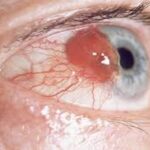“There is a need to create awareness that any type of cancer can be symptomless”
New Delhi, May 20, 2018: The incidence of multiple myeloma (MM) varies from 1.2 to 1.8 per 100,000 in India. Approximately, 50,000 new MM cases are diagnosed each year. Men are more likely to develop this condition than women. The signs and symptoms of MM vary and in the early stages of the disease, there may be no symptoms at all.
MM is a cancer that forms in a type of white blood cell called a plasma cell. Multiple myeloma causes cancer cells to accumulate in the bone marrow, where they crowd out healthy blood cells. Rather than produce helpful antibodies, the cancer cells produce abnormal proteins that can cause complications.
Speaking about this, Padma Shri Awardee, Dr K K Aggarwal, President, HCFI, said, “Although the definitive cause of MM is not known, there may be several factors contributing factors such as a genetic abnormality (c-Myc oncogenes). It is not a hereditary disease as nothing conclusive has been established thus far. Environmental exposures to herbicides, insecticides, benzene, hair dyes, and radiation may also be responsible. Apart from this, inflammation and certain infections may also be triggers. The condition almost always starts out as a relatively benign condition called monoclonal gammopathy of undetermined significance (MGUS). As myeloma cells crowd out normal blood cells, multiple myeloma can also cause anemia and other blood problems.”
Some signs and symptoms of this condition include bone pain (especially in the spine or chest), nausea, constipation, lack of appetite, confusion, fatigue, frequent infections, weight loss, weakness or numbness in your legs, and excessive thirst.
Adding further, Dr Aggarwal, who is also the Vice President of CMAAO, said, “The combination of treatments for MM depends upon to whether a person is a good candidate for bone marrow transplant. This depends on the risk of the disease progressing, a person’s age, and overall health. MM also causes a number of complications, and therefore, one may need treatment for those specific conditions as well. This includes kidney problems and eventually anemia.”
Some tips from HCFI
An anti-cancer diet can go a long way link preventing not just MM but other types too. Some tips one can follow are given below. Eating fruits and vegetables at every meal.
- Choosing whole grains instead of foods containing processed or refined grains.
- Limiting processed and red meats.
- Practicing eating habits that allow you to maintain a healthy weight.
- If you drink, limiting alcohol to two drinks daily if you’re a man and one if you’re a woman.







